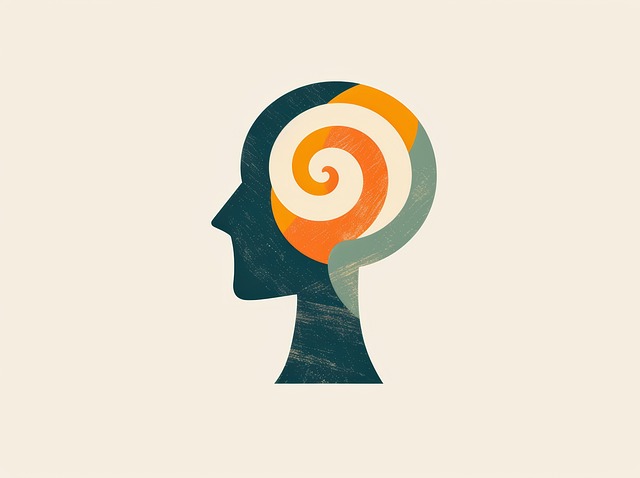Mental wellness promotion goes beyond treating symptoms and focuses on holistic well-being and resilience. Organizations can foster this through programs like stress management workshops. Nurturing self-esteem, crucial for mental health, is enhanced via therapy for sexual addiction, self-awareness practices, and healthy relationships. A multifaceted approach includes individual CBT sessions, group therapy, public awareness campaigns, and integrated support systems. Regular therapy, emotional intelligence development, and self-care practices like sleep, exercise, and setting boundaries lay a robust foundation for mental wellness, reducing the risk of severe psychological issues, including those related to sexual addiction.
Mental wellness promotion is a holistic approach that encompasses various strategies to foster overall well-being. In this article, we explore key aspects of enhancing mental health, including addressing sexual addiction through effective therapy methods. We delve into strategies for treatment and recovery, emphasizing the importance of support systems like family, friends, and community. Additionally, we discuss preventative measures and self-care practices essential for maintaining long-lasting mental wellness, with a special focus on therapeutic solutions for sexual addiction.
- Understanding Mental Wellness Promotion: A Holistic Approach
- The Significance of Addressing Sexual Addiction in Therapy
- Strategies for Effective Treatment and Recovery
- Integrating Support Systems: Family, Friends, and Community
- Preventative Measures and Self-Care Practices for Long-Lasting Wellbeing
Understanding Mental Wellness Promotion: A Holistic Approach

Mental wellness promotion involves a holistic approach that goes beyond simply addressing symptoms. It’s about fostering a sense of well-being and resilience that enables individuals to navigate life’s challenges with grace and adaptability. This includes nurturing self-esteem, a crucial component for mental health, which can be enhanced through various means like therapy for sexual addiction, self-awareness practices, and building healthy relationships. By focusing on these aspects, individuals can develop a stronger foundation from which they can manage stress more effectively.
Organizations play a vital role in this process by offering programs such as stress management workshops that empower employees to take charge of their mental health. These initiatives not only benefit the individual but also have a positive ripple effect on the organization’s overall productivity and culture. A holistic approach to mental wellness promotion, therefore, involves a collective effort to create an environment that prioritizes and supports mental well-being at every level.
The Significance of Addressing Sexual Addiction in Therapy

Addressing sexual addiction in therapy is a critical aspect of comprehensive mental wellness promotion. This is because sexual addiction, much like other compulsive behaviors, can have profound effects on an individual’s emotional intelligence and resilience building. Left untreated, it may lead to strained relationships, low self-esteem, and even depression or anxiety. Effective therapy for sexual addiction involves understanding the root causes behind the behavior, which could range from past traumas to psychological imbalances.
By incorporating techniques that boost confidence, therapists can empower individuals to overcome their addictions and build healthy coping mechanisms. This process not only enhances emotional intelligence but also fosters a sense of control and self-worth. Through therapy, patients learn to navigate their desires in healthier ways, thereby improving their overall mental wellness and relationships.
Strategies for Effective Treatment and Recovery

Promoting mental wellness involves a multifaceted approach, especially when addressing complex issues like sexual addiction. Effective treatment strategies include individual therapy sessions tailored to explore and overcome specific behaviors. Cognitive Behavioral Therapy (CBT), for instance, equips individuals with tools to challenge negative thought patterns and develop healthier coping mechanisms. Group therapy sessions provide a safe space for sharing experiences, fostering a sense of community, and enhancing accountability.
Beyond therapy, public awareness campaigns play a pivotal role in destigmatizing mental health issues. Well-designed communication strategies can normalize conversations around sexual addiction, encouraging affected individuals to seek help without fear of judgment. By integrating mind over matter principles, these campaigns emphasize the power of introspection, self-care, and resilience as essential components of recovery. This holistic approach not only facilitates treatment but also empowers individuals to maintain lasting positive changes in their lives.
Integrating Support Systems: Family, Friends, and Community

Integrating support systems is a vital aspect of mental wellness promotion, especially when addressing complex issues like sexual addiction. Family, friends, and community play a crucial role in providing an individual with a sense of belonging and emotional resilience. For those seeking therapy for sexual addiction, having a strong support network can significantly enhance the therapeutic process. This could involve open conversations about their struggles, which fosters understanding and reduces feelings of isolation.
Community initiatives and public awareness campaigns development around mental health issues can also contribute to risk management planning for mental health professionals. By educating the public and breaking down stigma, these campaigns encourage individuals to seek help early on, including for depression prevention. This collective effort ensures that everyone has access to the resources they need, fostering a healthier and more supportive environment for mental wellness.
Preventative Measures and Self-Care Practices for Long-Lasting Wellbeing

Promoting long-lasting mental wellness involves a combination of preventative measures and self-care practices. Regularly attending therapy sessions, especially for conditions like sexual addiction, can significantly enhance one’s emotional regulation and support trauma recovery. Emotional intelligence, a key aspect often cultivated through such therapeutic interventions, equips individuals with the skills to understand and manage their emotions effectively.
Self-care strategies include prioritizing sleep, engaging in regular physical activity, maintaining a balanced diet, and setting clear boundaries. These practices foster emotional resilience, helping individuals cope with stress and navigate life’s challenges more adeptly. By integrating these measures into daily routines, one can build a robust foundation for mental wellness, thereby reducing the risk of developing more severe psychological issues.
Mental wellness promotion is a multifaceted process that requires a holistic approach addressing various aspects of an individual’s life. As highlighted in this article, understanding and integrating strategies from different sections—from effective treatment and recovery to supportive systems and preventative self-care practices—are essential for fostering mental wellbeing. Specifically, recognizing the significance of addressing sexual addiction through therapy plays a crucial role in this journey. By adopting these practices, individuals can enhance their mental wellness, leading to a more fulfilling and balanced life. For those seeking therapy for sexual addiction, it’s important to explore integrated solutions that tap into support systems and self-care to achieve lasting recovery.











